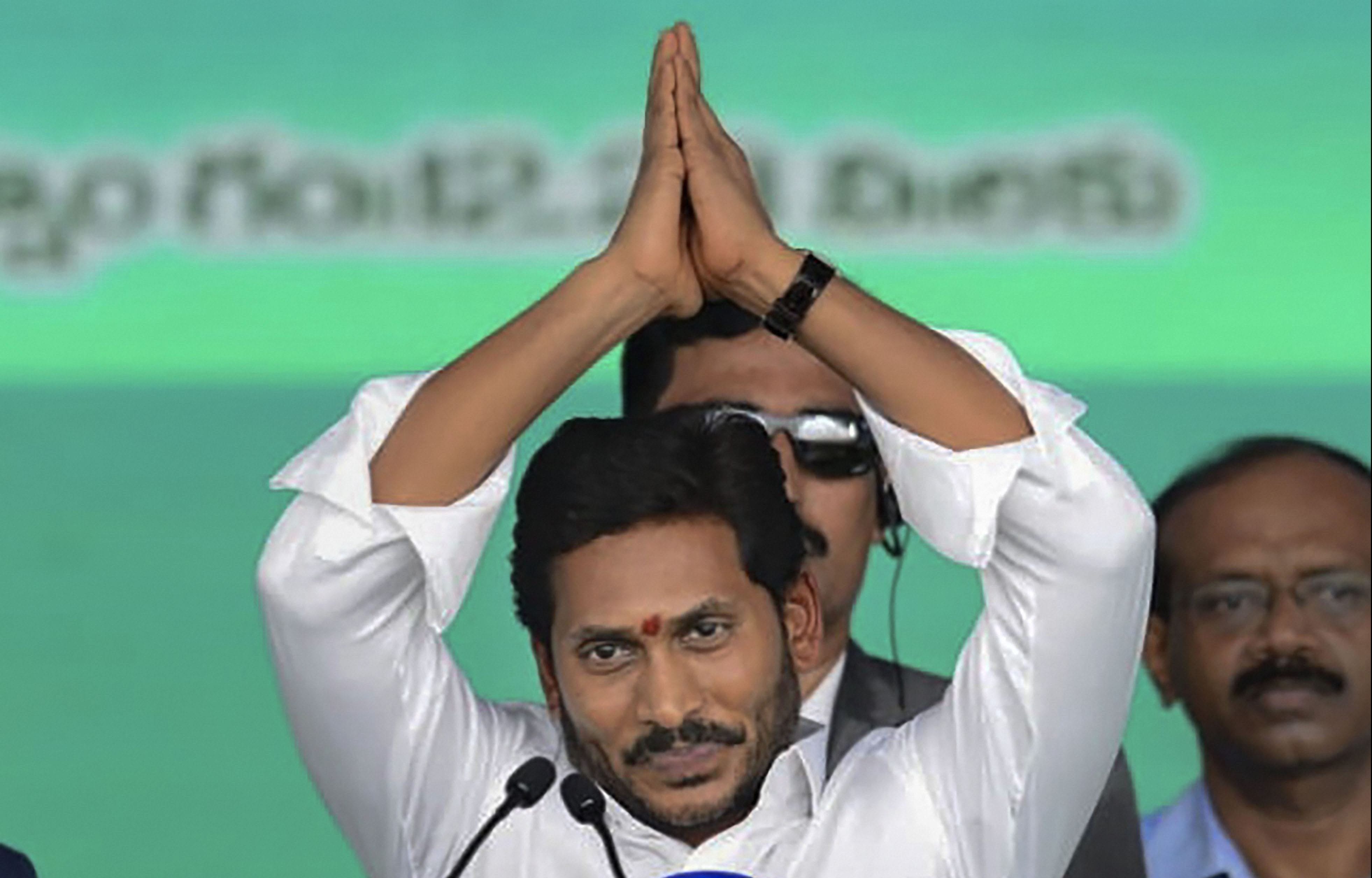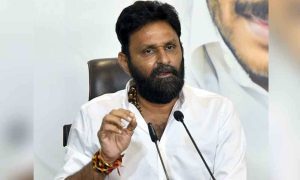
'Gudivada casino' stirred up a row in AP but is public gambling even legal?
It seems illegal gambling dens have made their way from Goa to Gudivada, a town in Andhra Pradesh. Gudivada also happens to be the native place of film stars, politicians and other important persons like matinee idols N T Ramarao (the former Chief Minister), A Nageshwar Rao, star hero, N Balakrishna, hero and MLA, and even the present Chief Justice of India N V Ramana. A convention hall in Gudivada in Krishna district was converted into a casino-like den with dancers, unlimited liquor, card games and illegal betting. This went on unabated under the guise of Sankranti festival from January 14 for three days as a form of ‘entertainment' for the Gudivadians.

It seems illegal gambling dens have made their way from Goa to Gudivada, a town in Andhra Pradesh. Gudivada also happens to be the native place of film stars, politicians and other important persons like matinee idols N.T. Ramarao (former chief minister); actors A. Nageshwar Rao and N. Balakrishna; and even the present Chief Justice of India N.V. Ramana.
A convention hall in Gudivada in Krishna district was converted into a casino-like den with dancers, unlimited liquor, card games, and illegal betting. This went on unabated under the guise of Sankranti festival from January 14 for three days as a form of ‘entertainment’ for the Gudivadians.
This episode has turned into a major political controversy with senior party leaders slamming each other on TV and social media channels. Interestingly, nobody seems to be worried that gambling is prohibited and a crime!
The Public Gambling Act of 1867 is a 155-year-old central law that prohibits running or being in charge of a public gambling house such as a casino. However, the penalty for breaking this law is a fine of a ridiculous amount of ₹200 or imprisonment of up to three months.
Additionally, this Act prohibits people from visiting gambling houses. A fine of ₹100 or imprisonment of up to one month is the penalty. This is today one of the forgotten laws since the friends and followers of persons in power themselves run the gambling houses. Police are under pressure not to act by powerful forces, while people expect them to implement the 1867 law.
Any casino kind of activity like betting is part of Public Gambling, which is specifically prohibited by law in Goa. Though this seaside resort tourist state has allowed a few casinos to operate as an exception through amendments. Casinos are illegal all over the nation because of the 1867 law. The states can also criminalise gambling specifically but that depends on the political will of the leaders.

Gambling was, however, in full swing at the K Convention centre in Gudivada, which is reportedly owned by Kodali Sri Venkateswara Rao (known as Nani), an Andhra Pradesh cabinet minister in the YSR Congress Party, in the name of Sankranti celebrations on January 14. There were gambling tables set up at the venue and a minimum amount of ₹5,000 was required to participate in the game.
Apart from betting, there was an unlimited flow of liquor and dancers were flown in from Goa to entertain the guests. Media reports said that the casino at Gudivada attracted a large crowd, which included rich persons who got recommendation letters from politicians to enter the venue. Mobile phones were, however, prohibited.
Also read: BJP promises ‘cheap liquor’ at ₹50 per bottle if voted to power in AP
An ugly spat broke out between Nani and Telugu Desam leader N. Chandrababu Naidu over the issue. The betting scandal took a new turn as the minister declared that he would quit politics and immolate himself if it was proved that the casino is owned or organised by him.
The TDP and others released several videos with proof that the hall was owned by the minister but he continued to refute it.
After a representation by TDP leaders, Superintendent of Police (Krishna district) Siddharth Kaushal directed the Nuzvid Deputy SP Srinivasulu to conduct an inquiry and submit a report.
The TDP leaders alleged that Minister Nani backed the organisers of the Goa-style casino event and demanded that a case be booked against him. The TDP leaders alleged that Gudivada had become a hub of anti-social activities and the ‘casino’ was organised in the guise of festival celebrations.
The TDP claimed that 13 women who were brought in for the dances returned to Goa on January 17 and they submitted their flight details. Teams from the Opposition party of TDP and BJP were prevented from visiting Gudivada to probe the issue. Several persons including the Opposition wrote to the Governor seeking his intervention to sack the minister and to ensure an impartial probe is conducted pm the illegal casino episode.
According to reports, more than ₹200 crore exchanged hands in the form of bets in card games, gambling and other games organised at the Gudivada event. The people and the government that facilitate such betting in the name of entertainment, however, impose a ban on a 100-year-old social drama ‘Chintamani’ in the name of obscenity!
Though such activities are called gaming, it is nothing but gambling which is prohibited even in a state like Goa, where casinos are common. Recently, in June 2021, the Goa Public Gambling Act 1976 was amended by the Goa assembly, to enhance the penalties and imprisonment terms by three times for gambling. Sections 3, 4 and 11 deal with the punishments for organising gaming houses, for being found in such premises, and for gambling or arranging bird or animal fights in spaces with public access.
Financial sanctions for first offences have now tripled from a minimum of ₹1,000 to ₹3,000. All other fines have been increased to amounts such as ₹1,500 and ₹2,500, and the maximum monetary penalty under these sections of the law becomes ₹7,000 (previously ₹5,000).
Also read: Unlike Bihar, political feud costs AP its chance to get special status
The Goa Public Gambling Act provided for a custodial sentence varying between ten days and three years for each offence together with monetary sanctions. The Courts will decide whether to sentence perpetrators to imprisonment, or only apply a fine to them, or both.
Goa Public Gambling Act was passed in 1976 when Goa, Daman, Diu were part of a single Union Territory. In 1987, Goa became a full-fledged state, while Daman and Diu remained as UTs. Originally, the Act extended to Daman and Diu as well.
After the amendment, the law is restricted to Goa only as the words Daman and Diu were deleted as obsolete. It does not mean there can be public gambling in Daman and Diu. By original law, in 1976, the casino culture is prohibited. But the amendments in 1992 and 1996, a provision was made that authorises the government to issue license for the casino gambling on offshore ships and five-star hotels with regulatory supervision of authority.
Some luxurious five-star hotels and table games with live dealers were legalised on cruise ships, considering that it was ‘Goa culture’. Hence, in Goa, along with ‘prohibition’ around a dozen land-based casinos and six offshore gambling establishments on vessels are operating on the Mandovi river, just outside the capital city of Panaji.
Here in these gambling centres, an average player, spends around $200 and $300, the most popular being western blackjack and roulette Games. Gambling contribute substantially to the government’s treasury as well. It is officially reported that for the fiscal year 2012-2013, the state got a total revenue of ₹135.45 crores from this sector in the form of taxes, entry fees, alcohol licenses and port charges from casino anchoring vessels.
It is estimated that the income turns out to be ₹4.5 crore per day, around 70 per cent will be tourists at floating casinos, while 80 per cent are Goans in onshore casinos, who have spent ₹330 crores in 2017-18.This income has grown to ₹414 crore next year, as per the report of the CM submitted before the Goa legislative assembly.
Like many other activities turning online in post-COVID society, the gambling also took a new platform in breach of the Goa Public Gambling Act. This was revealed in a recent search by the police leading to the arrest of 11 persons in Gandhi Market, Margao.
Matka or Satta bookies have adapted to online gambling. The illegal casinos are being set up because of ambiguous legal provisions of anti-gambling Laws. In India, casinos including online gambling cannot be promoted. They cannot have sites that promote online gambling games like casinos, sports betting and bingo.
Strangely, the law makers draw a conclusion that it is not illegal for non-Indian casino companies, the so-called offshore companies to have sites. The only requirement from a legal point of view, they claim, is that the offshore casinos have to offer Indian rupees as a payment method for Indian players.
One should not ignore that since January 2020, Telangana and Andhra Pradesh banned all kinds of online gambling for Indians. All those who took part in casino or other online or offline betting in the name of Sankranti celebrations should be sent to jail for one year or penalised to pay a fine.
But it seems unlikely that any such legal action will happen because many reportedly benefited from this gambling event, be it the players, visitors, organisers, the local government and the police.

